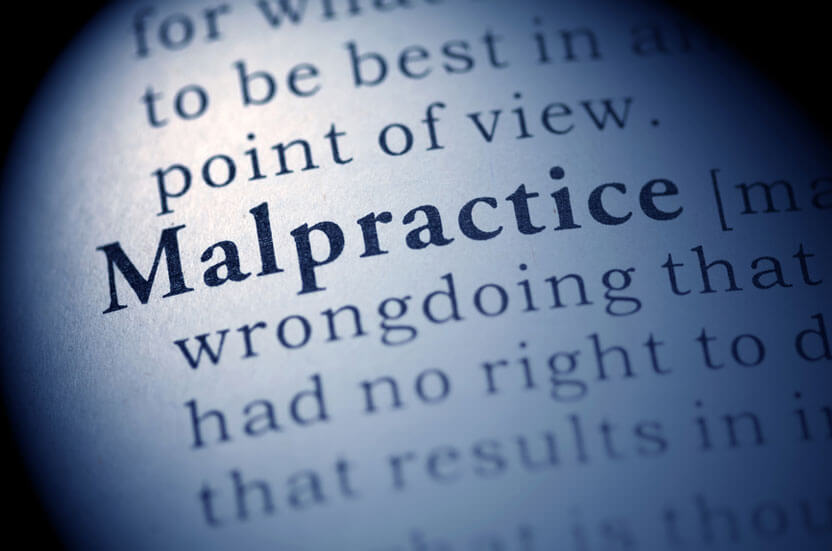New Jersey Court Clarifies Affidavit of Merit Rule in Medical Malpractice Cases Alleging Negligence by Unlicensed Employees
The Superior Court of New Jersey Revived a Med Mal Case in Affirming the Plaintiff Did Not Need to File an AOM with the Complaint
A “discrete yet novel issue” regarding affidavits of merit (AOMs) for medical malpractice cases could have far-reaching impacts on future vicarious liability claims. The issue centered on whether New Jersey law requires AOMs for vicarious liability claims filed against health care facilities when the alleged negligence involves unlicensed employees.
The New Jersey appellate court ruled that AOMs are not required for these types of medical malpractice suits. While that decision reversed a lower court’s dismissal of a medical malpractice case, putting it back in play, the ruling may also serve as a precedent for states with similar AOM rules and statutes.
A Closer Look at the Case
The case that raised the AOM issue, Haviland v. Lourdes Med. Ctr. of Burlington County, Inc. (Docket No. A-1349-19T3), involved allegations of negligence on the part of a radiology technician. According to the complaint, the plaintiff was undergoing a radiology exam on his left shoulder on February 23, 2018. During the exam, a technician requested that the plaintiff “hold weights contrary to the [ordering physician’s] instructions.”
This allegedly injured the plaintiff, resulting in the need for shoulder surgery, court documents explain. Additionally, the plaintiff alleges that the health care facility, Lourdes Medical Center (LMC), and the technician “fail[ed] to properly perform… imaging and otherwise deviated from accepted standards of medical care,” contributing to the injuries. The plaintiff was looking to hold LMC vicariously liable for the technician’s negligent actions.
Brief Background on Affidavits of Merit for Medical Malpractice Cases
New Jersey is one of 28 states with laws requiring an affidavit of merit for medical malpractice cases. It is also among 32 states and territories that have laws in place detailing the standards and requirements for experts testifying in medical malpractice cases.
While these laws vary between states, many were byproducts of tort reform laws, set up as a means of screening cases to weed out frivolous claims before they were brought to court. Affidavit of merit rules generally require plaintiffs to obtain and submit sworn statements from an expert verifying the merit of the claim. Although some states require an AOM with the initial filing, others provide a window of time for submitting these affidavits after the complaint has been filed.
Criticism of AOM rules takes issue with how these laws create more red tape for prospective plaintiffs, violating due process and unconstitutionally blocking access to the courts. This has resulted in the overturning of AOM requirements in some states, like Arkansas and New Hampshire, where the state high courts have declared the laws mandating AOMs to be unconstitutional.
Trial Court Requests AOM, Dismisses Case
On June 10, 2019, the defendant, LMC, filed an answer to the complaint, denying liability. Upon this filing, the court reportedly notified the plaintiff twice that an AOM had to be filed for the case by August 9, 2019.
The plaintiff did not file an AOM or show up for the initial court-ordered conference on August 7, 2019. An extension was granted, but three days before the October 10, 2019 deadline, the plaintiff advised the trial court that he would not be submitting an AOM. He argued that his claim against LMC was for vicarious liability and that the radiology technician is not a “licensed person,” per section 26 of New Jersey’s AOM statute.
Nevertheless, LMC moved to dismiss the plaintiff’s claim, and the trial court obliged, issuing an order to dismiss the case on November 25, 2019. The plaintiff filed an appeal soon after.
Appellate Court Reverses Dismissal, Explains When AOMs Are Not Required for Med Mal Cases
After reviewing the facts and arguments of the case, the Superior Court of New Jersey overturned the trial court’s dismissal, ruling that the plaintiff did not need to file an AOM. Issued on January 27, 2021, the court ruling, written by Judge Lisa Rose, noted that:
Neither the Supreme Court nor this court has directly considered whether an AOM is required where a plaintiff’s sole theory of liability against a licensed entity is vicarious based upon the alleged medical negligence of an unlicensed person. In the absence of controlling precedent, we conduct our own examination of the [AMS] and of the discrete circumstances before us.
Analyzing and citing various case law, Judge Rose ruled that “an AOM is not required for a health care facility when the plaintiff’s claims in a medical negligence action are limited to vicarious liability for the alleged negligence of its employee, who does not meet the definition of a licensed person under section 26 of the AMS.”
Without commenting on whether experts were needed to speak to the standard of care in the case, Judge Rose reinstated the claim and remanded it to the trial court.
Could the Court Ruling Have Bigger Implications?
The appellate court’s ruling on affidavits of merit in this vicarious liability claim has shed more light on the complex issues and procedural requirements surrounding these types of medical malpractice cases. While it remains to be seen whether the plaintiff or defendant will be victorious in the case that brought wider attention to this issue, Haviland v. Lourdes Med. Ctr. of Burlington County, Inc., the recent opinion on AOMs in New Jersey medical malpractice cases could pave the way for similar rulings from other courts across the U.S. If it does, there could be more of these types of vicarious liability claims filed in the future.

